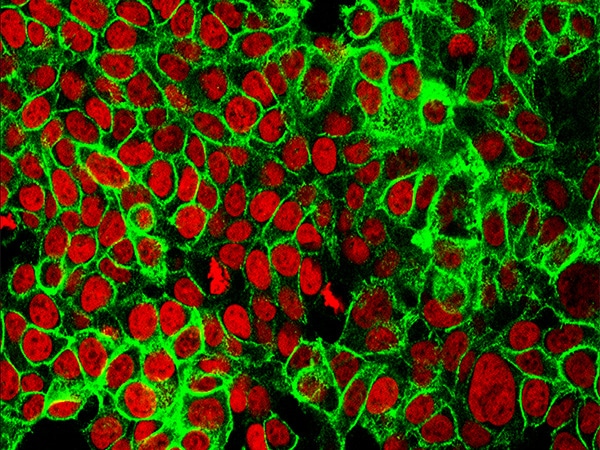Expanding the Use of an Immunotherapeutic to Colorectal Cancer
The FDA decision means the immune checkpoint inhibitor nivolumab is now approved for seven types of cancer.

Use of the immunotherapeutic nivolumab (Opdivo) was recently expanded by the U.S. Food and Drug Administration (FDA) to include the treatment of certain patients with colorectal cancer.
Under the expanded approval, nivolumab can now be used for treating patients ages 12 and older who have metastatic colorectal cancer that tests positive for either of two genetic biomarkers – microsatellite instability-high and mismatch repair-deficiency – and that has progressed despite treatment with standard cytotoxic chemotherapy.
With this decision, nivolumab is now an approved treatment for certain patients with bladder cancer, colorectal cancer, head and neck cancer, Hodgkin lymphoma, kidney cancer, lung cancer, and melanoma.
According to the National Cancer Institute, 50,260 people in the United States are expected to die from colorectal cancer in 2017, making it the country’s second leading cause of death from cancer. Thus, new treatment options are urgently needed.
Numerous lines of research have led to the idea that cancers that are microsatellite instability-high and/or mismatch repair-deficient have more genetic mutations than tumor cells without them and that this makes them more likely to be recognized by the immune system and to be responsive to immunotherapeutics called immune checkpoint inhibitors. This idea is supported by the recent FDA approval of another immune checkpoint inhibitor, pembrolizumab (Keytruda), for treating adults and children who have any type of unresectable or metastatic solid tumor found to be microsatellite instability-high or mismatch repair-deficient.
The approval of nivolumab for metastatic colorectal cancer that is microsatellite instability-high or mismatch repair-deficient was based on early results from the phase II CheckMate 142 clinical trial. According to the FDA statement, these results showed that 32 percent of the 74 patients in the trial who were treated with nivolumab had partial or complete tumor shrinkage.
Given that the approval of nivolumab centers on response data, rather than overall survival, the company that manufactures nivolumab (Bristol-Myers Squibb) is required by the FDA to conduct additional studies to confirm that the immunotherapeutic improves survival for patients with metastatic colorectal cancer that is microsatellite instability-high or mismatch repair-deficient.
The FDA approval was rendered on August 1, 2017.
